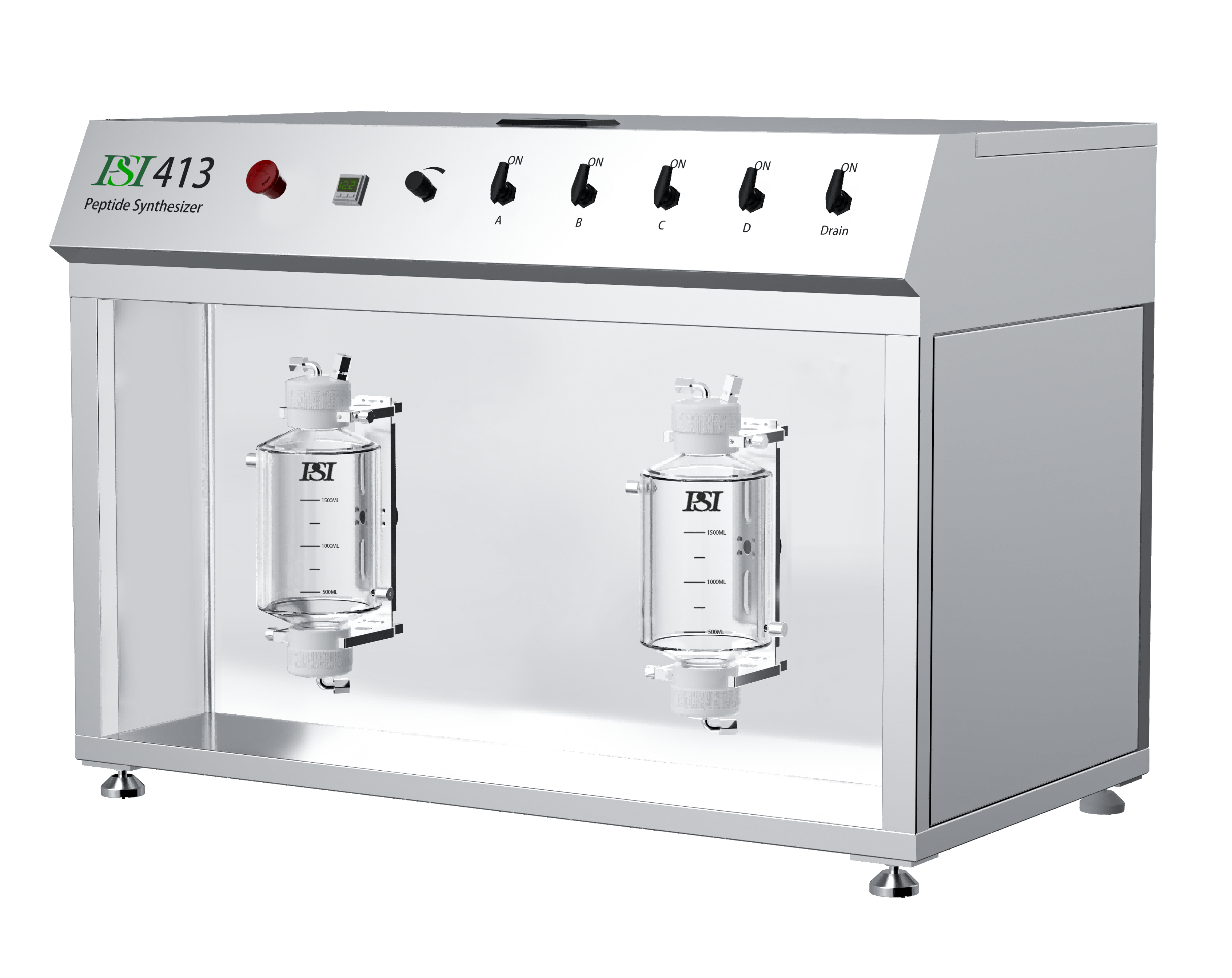What are the advantages and disadvantages of high-throughput peptide synthesizers?
Release Time:2024-01-09
Number of views:964
The application of high-throughput peptide synthesizers in drug development, biotechnology and other fields is becoming increasingly widespread. The working principle mainly includes the following steps:
1.Design peptide sequence: First, determine the peptide sequence to be synthesized and input it into the computer.
2. Select reaction conditions: Based on the different peptide sequences and synthesis methods, choose appropriate reaction conditions such as solvent, temperature, time, etc.
3. Preparation of raw materials: Prepare the amino acids and other reagents required for peptide synthesis, and add them to the reactor in a certain order.
4. Start reaction: Start the peptide synthesizer to automatically initiate the reaction. During the reaction process, the instrument will automatically control the temperature, pressure, stirring speed and other parameters of the reaction according to the set reaction conditions.
5. Monitoring the reaction process: During the reaction process, the instrument will monitor the status of the reaction in real time and adjust it according to the set reaction conditions. If any abnormal situation is found, the instrument will automatically stop responding and give an alarm.
6. Collect products: After the reaction is completed, the instrument will automatically stop stirring and collect the products. Then, the
product can be purified and identified through chromatography and other methods.
Advantages of high-throughput peptide synthesizers:
1.High purity: The peptide synthesizer can precisely control the reaction conditions, making the synthesized peptides highly pure, which is crucial for subsequent drug development and bioengineering experiments.
2. High efficiency: The major advantage of peptide synthesizers is their high efficiency. Traditional peptide synthesis methods require a lot of time and manpower, while peptide synthesizers can simultaneously process a large number of samples, greatly improving synthesis efficiency.
3. Flexibility: The peptide synthesizer can synthesize various peptides of different lengths and structures, meeting the needs of different experiments.
4. Automation: The peptide synthesizer can achieve full automation operation, reducing human errors and improving the reliability of experiments.
The high-throughput peptide synthesizer also has some drawbacks:
1. High cost: The equipment of peptide synthesizers is expensive and may not be affordable for some small businesses and research institutions.
2. High technical requirements: The operation of the peptide synthesizer is complex and requires professional technicians to operate and maintain, which is a challenge for some users without relevant professional backgrounds.
3. High maintenance cost: Due to the complexity of the peptide synthesizer, its maintenance cost is also relatively high. This includes not only equipment maintenance costs, but also regular equipment calibration and software updates.
4. Sample limitation: Although the peptide synthesizer can synthesize various peptides of different lengths and structures, it may not be possible to synthesize certain peptides with special structures through the peptide synthesizer.





